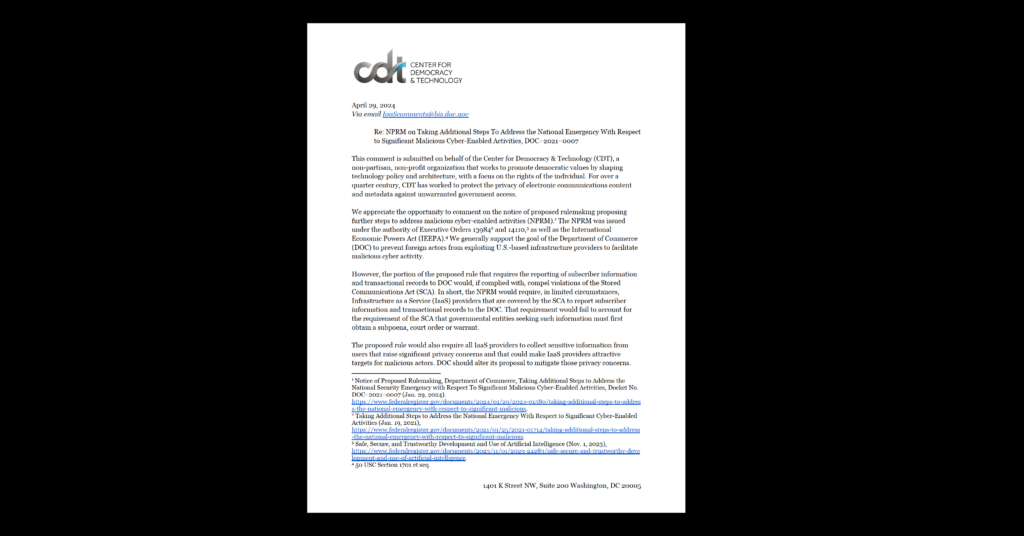Privacy Recommendations for Google Book Search
CDT has released our analysis of the privacy implications of the settlement in the Google Book Search lawsuit, which includes a detailed set of privacy recommendations for Google to consider as the service is developed.
As David Sohn initially wrote in October, CDT believes the settlement has a lot to offer the reading public, namely dramatically expanding access to the millions of books Google has scanned and indexed. Such a shift, though, does not come without concerns, particularly with respect to traditional the library values of patron privacy and intellectual freedom. With the release of today’s report, CDT joins our colleagues at the EFF, the ACLU, and UC-Berkeley’s Samuelson Law, Technology, and Public Policy Clinic, in calling for strong privacy protections in the expanded service.
At CDT, we believe that since privacy was (understandably) not a central consideration of the parties to the settlement, it is incumbent upon Google, with court supervision, to ensure that privacy is adequately protected. Critically, we think this can be accomplished without disrupting or delaying the approval of the settlement itself. The report calls for Google to make as specific a commitment as it can at this early stage to protecting reader privacy, and for the judge overseeing the settlement to exercise his authority to ensure that Google’s commitments effectively guide policies and practices as the service is fully implemented. To Google’s credit, the Book Search team is clearly thinking about privacy, and addressed some of CDT’s concerns in a blog post late last week. This should be the beginning, though, and not the end of the privacy discussion, and we look forward to working with Google and the court to preserve reader privacy as the library moves online.


